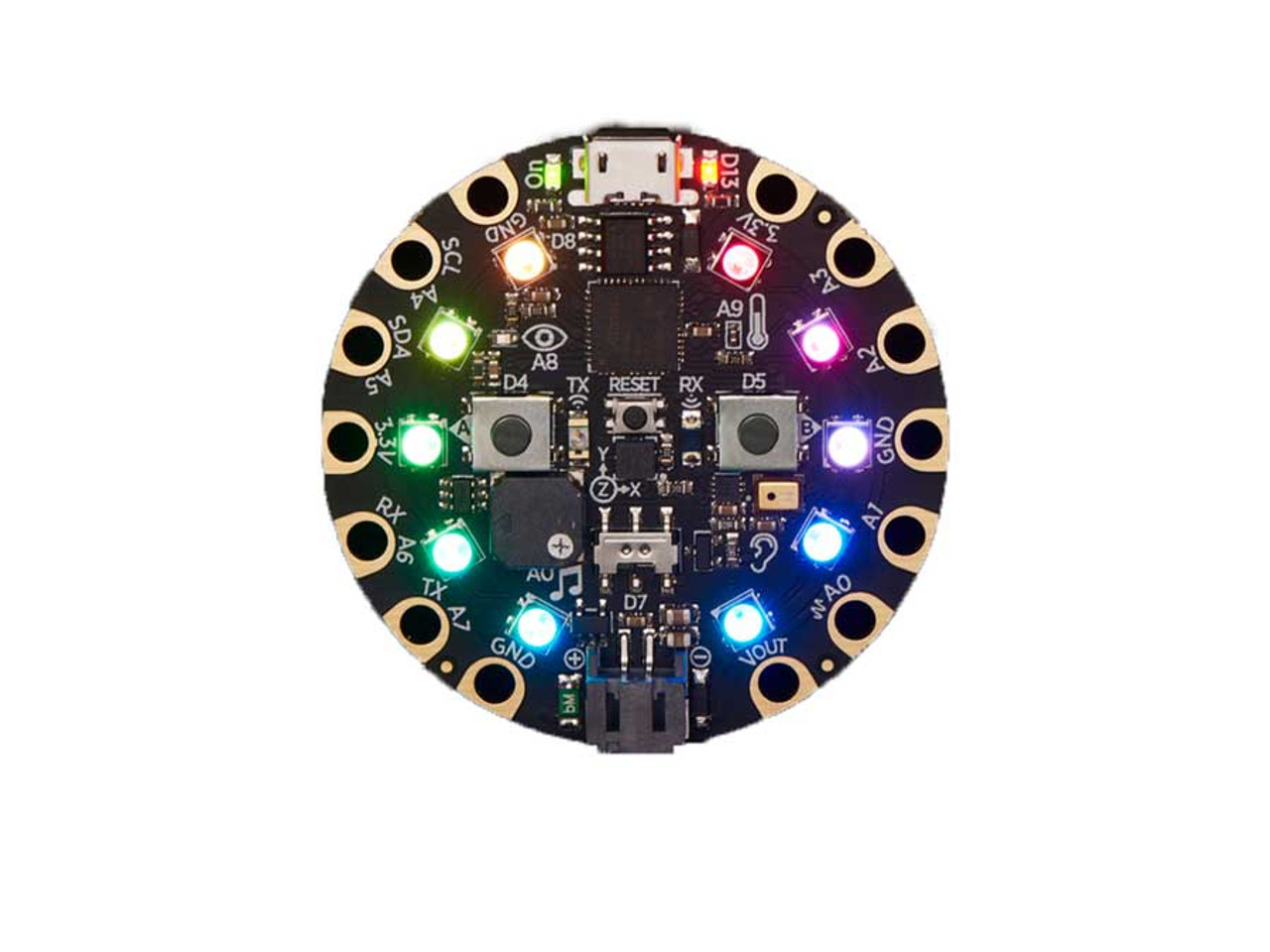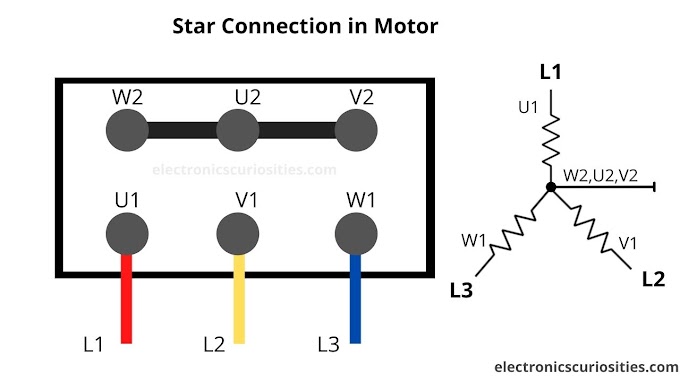The Best Microcontroller Boards for beginner projects
1. Arduino Uno Microcontroller board
 |
| Arduino Uno |
The Arduino Uno is a popular microcontroller board based on the ATmega328P microcontroller. It has digital input/output pins, analog inputs, and various other features, making it suitable for a wide range of projects. Check out more here.
2. Arduino Mega 2560 Microcontroller board
 |
| Arduino Mega 2560 |
The Arduino Mega 2560 is similar to the Arduino Uno. Still, it offers more I/O pins and memory, making it suitable for larger and more complex projects that require additional connectivity and processing power. More details
3. BBC Microbit Microcontroller board
The BBC micro bit is a pocket-sized microcontroller board designed for educational purposes. It features an ARM Cortex-M0 processor, LED display, accelerometer, compass, and various input/output options. It is often used to teach coding and electronics to beginners. Check for more details about BBC micro bits.
4. Arduino Uno R4 Minima Microcontroller board
 |
| Arduino Uno R4 Minima |
The Arduino Uno R4 Minima is a variant of the Arduino Uno that emphasizes minimalism and compactness. It offers features similar to the Arduino Uno but in a smaller form.
https://robu.in/product/arduino-uno-r4-minima/
5. Arduino Zero Microcontroller board
The Arduino Zero board is based on the Atmel SAMD21 microcontroller, which features a 32-bit ARM Cortex-M0+ core. It offers more processing power, additional peripherals, and lower power consumption compared to the Arduino Uno.
6. Arduino Uno R4 WiFi Microcontroller board
 |
| Arduino Uno R4 WiFi |
The Arduino Uno R4 WiFi is a variant of the Arduino Uno that includes built-in Wi-Fi connectivity, allowing for wireless communication and IoT (Internet of Things) applications.
7. Calliope mini Microcontroller board
 |
| Calliope mini |
Calliope mini is a microcontroller board developed in Germany specifically for educational purposes. It is designed to introduce children to programming and physical computing with a simple block-based programming interface.
https://en.wikipedia.org/wiki/Calliope_mini
8. Adafruit ESP8266 Feather Microcontroller board
 |
| Adafruit ESP8266 Feather |
The Adafruit ESP8266 Feather is a compact board based on the ESP8266 Wi-Fi module. It provides Wi-Fi connectivity and is compatible with the Arduino IDE, making it useful for IoT projects.
9. Adafruit ESP32 Feather Microcontroller board
 |
| Adafruit ESP32 Feather |
The Adafruit ESP32 Feather is another compact board, but it is based on the more powerful ESP32 microcontroller. It offers both Wi-Fi and Bluetooth connectivity and has more I/O options compared to the ESP8266 Feather.
https://learn.adafruit.com/adafruit-esp32-feather-v2/pinouts
10. Adafruit ESP32-S2 Feather Microcontroller board
 |
| Adafruit ESP32-S2 Feather |
The Adafruit ESP32-S2 Feather is a variant of the Feather series that uses the ESP32-S2 microcontroller. It offers similar features to the ESP32 Feather but with some differences in terms of I/O pins and capabilities.
11. Raspberry Pi Pico Microcontroller board
 |
| Raspberry Pi Pico |
The Raspberry Pi Pico is a microcontroller board developed by the Raspberry Pi Foundation. It is based on the RP2040 microcontroller and offers a blend of performance, flexibility, and low cost. It can be programmed using MicroPython or C/C++.
https://in.element14.com/raspberry-pi/raspberry-pi-pico/raspberry-pi-32bit-arm-cortex/dp/3643332
12. Adafruit Clue Microcontroller board
 |
| Adafruit Clue |
The Adafruit Clue is a small board featuring a Nordic nRF52840 microcontroller. It has a built-in color display, various sensors (accelerometer, gyroscope, magnetometer, temperature, humidity, and more), and Bluetooth connectivity.
https://www.adafruit.com/product/4500
13. Adafruit Metro M4 Microcontroller board
 |
| Adafruit Metro M4 Microcontrollerboard |
The Adafruit Metro M4 is a board based on the powerful ATSAMD51 microcontroller. It offers a high clock speed, plenty of memory, and numerous I/O pins, making it suitable for demanding projects.
https://learn.adafruit.com/adafruit-metro-m4-express-airlift-wifi/featured_products
14. Maxim MAX32620 FTHR Microcontroller board
 |
| Maxim MAX32620 FTHR Microcontroller board |
The Maxim MAX32620 FTHR is a compact board based on the MAX32620 microcontroller. It provides low-power operation, cryptographic support, and various I/O options for applications such as wearables and IoT devices.
https://www.analog.com/en/products/max32620.html#product-overview
15. Adafruit Circuit Playground Express Microcontroller board
 |
| Adafruit Circuit Playground Express |
The Adafruit Circuit Playground Express is a board designed for educational purposes and prototyping. It features a variety of sensors, buttons, and LEDs, making it easy to learn and experiment with electronics and programming. Check here
16. Speed Maixduino Microcontroller board
 |
| Speed Maixduino Microcontroller Board |
The Speed Maixduino is a board based on the Kendryte K210 dual-core RISC-V processor. It offers AI acceleration capabilities, a camera interface, and other features suitable for computer vision and machine learning applications.
17. Teensy 4.0/4.1 Microcontroller board
 |
| Teensy 4.0/4.1 Microcontroller Board |
Teensy 4.0 and Teensy 4.1 are powerful microcontroller boards based on the ARM Cortex-M7 processor. They offer high clock speeds, large amounts of memory, and numerous I/O pins, making them suitable for advanced projects that require speed and performance. Check here
18. Raspberry Pi Pico WiFi Microcontroller Board
 |
| Raspberry Pi Pico WiFi Microcontroller Board |
The Raspberry Pi Pico Wifi comes with a wireless communication module. The wireless module hardware uses Infineon's CYW43439 wireless chip, which supports Wi-Fi 4 wireless networks in the 2.4/5 GHz bands, making it the perfect solution for wireless network control and communication.
19. STM32 Microcontroller board
 |
| STM32 Microcontroller board |
Frequently Asked Questions on Microcontroller Boards
How is a microcontroller different from a microprocessor?
What can microcontrollers be used for?
What programming languages are commonly used with microcontrollers?
What is the difference between Arduino and microcontrollers?
How do I program a microcontroller?
Can I use multiple microcontrollers in a single project?
Can microcontrollers connect to the internet?
How do I choose the right microcontroller for my project?
Can I use microcontrollers without programming experience?






